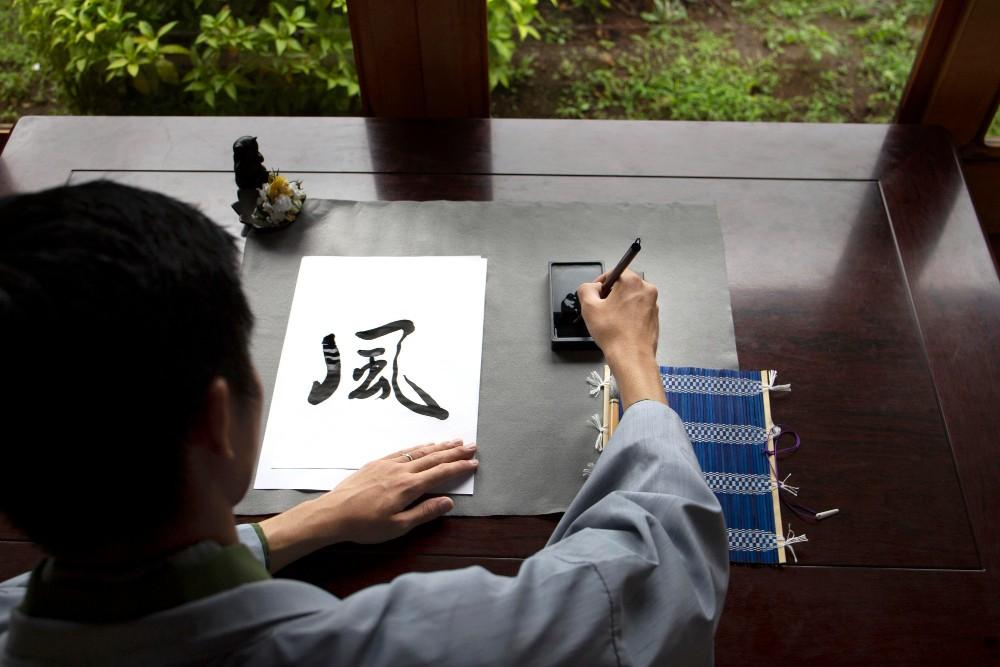
“Today is victory over yourself of yesterday; tomorrow is your victory over lesser men.”
Miyamoto Musashi
If you’ve ever Googled “how to build discipline,” you’ve probably been slapped with the same cookie-cutter advice: wake up at 5 a.m., grind until your eyes bleed, and eat boiled chicken until you forget what joy tastes like.
That stuff might work if you’re training for a Spartan race (or just enjoy self-torture), but for the rest of us normal humans, it’s a one-way ticket to burnout.
Here’s the uncomfortable truth: discipline isn’t about flogging yourself into submission. It’s about creating an internal system that frees you to do the things that actually matter.
Psychologists call this self-regulation, and research shows it’s a stronger predictor of life satisfaction and success than IQ or raw talent. Translation? Discipline beats genius every single time.
And this isn’t a new idea. The samurai in 17th-century Japan weren’t just swinging swords around—they lived by principles recorded in texts like The Book of Five Rings by Miyamoto Musashi. Over in ancient Greece, Stoics like Epictetus and Marcus Aurelius preached that true freedom comes from self-mastery.
Modern neuroscience backs them up: discipline is less about “grit your teeth and suffer” and more about training your brain to align habits with long-term goals.
So, instead of another bland productivity checklist, what you’re about to read is a modern-day Book of Five Rings disguised as a manifesto for living a happy and successful life. Five ancient lessons, remixed for the chaos of the 21st century. No samurai sword required.

So, buckle up. In the next few minutes, you’re going to see why discipline isn’t about restriction—it’s about freedom. And by the time you’re done reading, you’ll walk away with five ancient lessons you can actually use today without turning into a productivity zombie.
When Miyamoto Musashi stepped into a duel, he didn’t expect a clean, cinematic sword fight. He expected chaos. Splintered wood. Dust in the air. His opponent was flailing in desperation.
Sometimes he even showed up late deliberately just to rattle them. Musashi wasn’t preparing for perfection—he was preparing for reality.
Now, contrast that with the way most of us try to build discipline today. We want things neat, controlled, and Instagram-worthy. “I’ll meditate at 6 a.m. every day, journal with my oat-milk latte, and suddenly my life will be Zen-like.”
Then reality hits—your alarm feels like a war crime, your brain won’t shut up, and the latte machine breaks. Suddenly, your “disciplined” morning is derailed by a hissy fit.
The brutal reality: if you want to know how to build discipline, stop waiting for smooth roads. Discipline isn’t forged in comfort—it’s forged in struggle.
Psychologists call this frustration tolerance—your ability to keep going even when everything sucks. Studies show that people with higher frustration tolerance are more consistent, resilient, and ultimately more successful.
Those with low tolerance? They crumble into Netflix binges and doomscrolling marathons the second life throws a curveball.

Musashi? He did the opposite. After defeating Sasaki Kojiro in his most famous duel, he didn’t celebrate or parade his victory. Instead, he disappeared into a cave for two years. Why?
To dissect his weaknesses. Even after winning, he obsessed over the near-mistakes that almost cost him. That’s Earth Ring thinking: brutal self-assessment, unflinching honesty, and the refusal to hide from reality.
Take Archie, who swears he’s hustling. Reality check: mornings wasted in inbox hell, afternoons lost in tabs, evenings swallowed by YouTube. The numbers? Five hours of scrolling and one hour of work.
Archie’s routine isn’t new—it’s just the modern remix of an ancient problem. Seneca nailed it centuries ago:
“It is not that we have a short time to live, but that we waste much of it.”
He didn’t have a time problem—he had a focus problem. Like Musashi, Archie had to face the ugly truth before he could change. The samurai handbook Hagakure puts it bluntly:
“Matters of great concern should be treated lightly.”
Translation? Stop turning every struggle into a damn Shakespearean tragedy. Accept the mess as normal, and it loses its power over you. The Earth Ring’s lesson is brutal but freeing: quit chasing “easy.”
Expect the setbacks, the boredom, the resistance—and hold your ground anyway. Because that’s the bedrock of how to build discipline—not glossy habits, but the unsexy act of showing up when everything in you wants to bail.
Here’s the paradox of discipline: the harder you try to control everything, the faster it slips through your fingers. Anyone who’s tried the “perfect schedule” experiment knows this.
Wake at 5 a.m., run 10k, smash through eight hours of deep work, meal prep, meditate, journal, and sleep like a monk. Looks flawless on paper. In reality, by Tuesday you’re face-down in a pizza box wondering what the hell went wrong.

Musashi figured this out centuries ago. In The Book of Five Rings, he wrote that water “adapts to its receptacle.” He wasn’t dishing out Instagram-level self-care tips. He was stating a battlefield truth: rigid strategies die fast. Flexible ones adapt, survive, and win.
Here’s what nobody tells you about Musashi’s early career: in his first 20 duels, he never used the same weapon twice. Sword, spear, wooden stick, bare hands—it didn’t matter. He wasn’t obsessed with the “perfect method.”
He was training himself to adapt when reality swung back harder than expected. That’s how he built discipline: not by forcing his plan, but by flowing around obstacles like water.
Modern psychology backs this up. Studies on habit formation show that starting tiny—flossing one tooth, walking for two minutes—creates momentum that lasts far longer than extreme overhauls. If you want to know how to build discipline, forget the kamikaze lifestyle redesign. Think trickle, not tidal wave.
Applied to discipline: trick your own resistance. Your mind tells you to skip the workout? Drop for one push-up. It whispers to bail after a paragraph? Write the second. The body begs for comfort—deny it. The mind craves escape—resist it. Each refusal, each small act of defiance, sharpens your edge.
That’s how you stop being the one who quits and start becoming the one who endures willingly. So instead of overhauling your entire life, start laughably small:

The Water Ring teaches that discipline isn’t about heroic leaps—it’s about flow. Each tiny act carves the groove a little deeper until discipline feels less like a fight and more like a current you follow.
Over time, those drops add up. A river doesn’t shatter stone in a day—it reshapes it through relentless persistence. That’s how to build discipline: not by smashing reality with grand gestures, but by bending, adapting, and outlasting it.
If Earth is about honesty and Water is about adaptation, Fire is about raw energy. Musashi described the Fire Ring as intensity in battle—the ability to overwhelm, to press forward when hesitation would cost your life. Translated to modern life, it’s about harnessing focused energy instead of letting it scatter into distractions.
The brutal reality is most people don’t have an energy problem. They have a direction problem. They’re like a blowtorch with the nozzle broken—spraying everywhere, burning nothing. Checking emails, scrolling TikTok, half-working, and half-complaining. No wonder nothing gets done.
Research shows that task-switching leaves mental residue—part of your brain stays stuck on the old task. Multitasking doesn’t just make you slower; it makes you dumber.
Stanford research confirms this: heavy multitaskers perform worse on every cognitive measure. Your brain literally rewires itself for distraction when you feed it chaos. Fire dies when it’s spread too thin. It roars when it’s concentrated.
Musashi knew this on the battlefield. He never aimed for flashy moves—he aimed for the strike that ended the fight. One clean cut, not ten wasted ones. Fire means picking the one thing that matters and pouring everything into it.

And he lived it. After his father’s death at seven, Musashi could have collapsed under grief. Instead, he channeled that fire into training—swinging his wooden sword day after day, not to wallow in anger, but to sharpen it into skill. Like Seneca wrote:
“Fire is the test of gold; adversity, of strong men.”
Musashi forged himself in the fire, not despite it, but because of it. Modern productivity experts echo the same principle. Cal Newport calls it deep work—sustained focus on cognitively demanding tasks without distraction.
Studies suggest it’s the only way to consistently produce meaningful results in a noisy world. If you want to know how to build discipline, this is the ring where it catches fire.
So how do you channel it? Simple: light one fire, not ten candles.
Remember Archie from earlier? Once he faced his brutal time-tracking reality, he had to channel that embarrassment somewhere. Instead of scrolling for five hours, he picked one project and poured that energy into focused work. Same emotional fuel, better direction.
The Fire Ring teaches this: discipline isn’t about endless hustle; it’s about controlled burn. Too little energy and nothing happens. Too much, spread everywhere, and everything goes up in smoke. But focused fire? That’s how empires—and disciplined lives—are built.

Musashi’s Wind Ring isn’t about flexing over rival schools. People misread it like that. What he was really doing was studying them—because the second you stop learning, you’re already dead. Not literally, but mentally and professionally.
He even spells it out: “I have written about other schools of strategy.” Not to brag, but to remind himself—and us—that mastery isn’t a finish line. Even with numerous duels to his name, Musashi declared:
“I have not yet reached the Way.”
Translation: stop polishing your trophy and get back to work. Imagine Michael Jordan retiring with six championship rings and still calling himself a rookie. That’s not modesty. That’s war against ego.
Modern psychology agrees. The Dunning-Kruger effect shows how the least skilled often feel the most confident. Your brain convinces you you’ve “arrived” right before reality kicks in.
Growth mindset research shows that people who stay students consistently outperform those who think they’ve ‘arrived’. Musashi knew this centuries before science proved it. His Wind Ring is the antidote: relentless humility disguised as strategic advantage. Think of it as reverse arrogance—pretend you know nothing so you can learn everything.
Now picture the guy who starts hitting the gym, drops 10 pounds, and then declares himself a fitness guru on Instagram. Or the startup founder who raises seed money and suddenly thinks he’s Steve Jobs.
They confuse a checkpoint for the summit. That’s how mediocrity sneaks back in—disguised as success. If you want to know how to build discipline that actually lasts, learn from Musashi: study outside yourself.

Read authors who contradict your beliefs. Train with people stronger, faster, and smarter. Seek out someone who makes your progress look embarrassing. Instead of shrinking from it, lean in. That discomfort is your compass.
Because the Wind Ring isn’t just about humility. It’s about keeping curiosity alive while others get complacent. Success makes most people soft. The disciplined use success as proof they’ve barely scratched the surface.
Here’s what’s actually happening: the moment you say “I’ve made it,” you’ve already lost it. Because you haven’t. Musashi knew the danger of thinking there’s only one finish line. As he put it:
“You must understand that there is more than one path to the top of the mountain.”
The wind doesn’t rest. Neither should you.
Here’s the paradox of discipline: the more you chase perfection, the more miserable you get. You’ll never “arrive.” There’s no finish line where you suddenly unlock god-tier productivity and coast through life.
Musashi called this the Void—not emptiness in the depressing, “nothing matters” sense, but emptiness as liberation. The Void is the realization that the struggle itself is the way. Discipline isn’t about finally nailing your morning routine or hacking your life with some bulletproof system.
It’s about showing up, failing, adjusting, and showing up again. That’s how to build discipline: not by avoiding failure, but by learning to fold failure into the process.
Modern psychology calls this radical acceptance. Instead of demanding certainty, you train yourself to dance with uncertainty. Athletes call it the grind.

The Stoics called it Amor Fati—love of fate. Doesn’t matter the language. The essence is the same: discipline isn’t controlling life. It’s standing present inside it.
Take Sisyphus, cursed by the gods to push his boulder up a hill forever. Most people read that myth as a tragedy. But Albert Camus flipped it:
“One must imagine Sisyphus happy.”
Why? Because once you stop obsessing over the top of the hill, the act of pushing itself becomes the game. The boulder isn’t punishment. The boulder is practice.
Musashi lived this truth. After winning over 60 duels throughout his career, including his final victory over Sasaki, he didn’t retire to a castle and sip sake. He kept training, painting, writing, and carving sculptures. Not to prove anything. Not to hit milestones. But for a warrior, practice was life.
“The way of the warrior is the resolute acceptance of death,” the Hagakure reminds us. Once you’ve accepted death, every act—writing a line, painting a stroke, swinging a sword—becomes enough.
So here’s the paradox: you don’t ever reach a place where discipline becomes easy. You become the kind of person who does hard things automatically. Not because they’re glamorous. Not because they guarantee success. But because that’s what you do.
If you want to know how to build discipline that actually lasts, here’s your Void practice: Pick one thing you’ll do daily with no expectation of payoff. Run a mile. Meditate for five minutes. Practice scales on a guitar.

The act isn’t about progress—it’s about presence. Over time, the Void rewires your identity: you stop being someone chasing outcomes and start being someone who shows up.
And that’s the lesson Musashi has been whispering across four centuries: The disciplined life isn’t about winning the war once. It’s about loving the fight enough to show up every day.
The takeaway?
Learning how to build discipline isn’t about hacks, quick fixes, or that perfect morning ritual Instagram influencers swear by. It’s about showing up, again and again, with clarity, flexibility, fire, humility, and acceptance. Earth. Water. Fire. Wind. Void.
You’ll never “arrive”—because the point isn’t mastery. The point is momentum. Every rep, every uncomfortable choice, every time you keep going when it would’ve been easier to quit—that’s you forging yourself into someone stronger.
Musashi lived and died by the sword. You and I? We live and die by how we spend our days. If you want a meaningful life, don’t hunt shortcuts. Build discipline. Not because it guarantees success, but because it guarantees you’ll actually show up for the fight.
And here’s the shift the Void teaches: stop asking about endings. Start asking about beginnings. What battle starts today? What weakness gets confronted? What growth gets carved from struggle?
Because when you learn how to build discipline, you stop waiting for the finish line—and you start realizing the fight itself is the reward. Archie learned this the hard way, Musashi lived it for decades, and now it’s your turn.
The boulder’s always waiting. The only question is: will you push?
DISCLOSURE: In my article, I’ve mentioned a few products and services, all in a valiant attempt to turbocharge your life. Some of them are affiliate links. This is basically my not-so-secret way of saying, “Hey, be a superhero and click on these links.” When you joyfully tap and spend, I’ll be showered with some shiny coins, and the best part? It won’t cost you an extra dime, not even a single chocolate chip. Your kind support through these affiliate escapades ensures I can keep publishing these useful (and did I mention free?) articles for you in the future.
READ NEXT